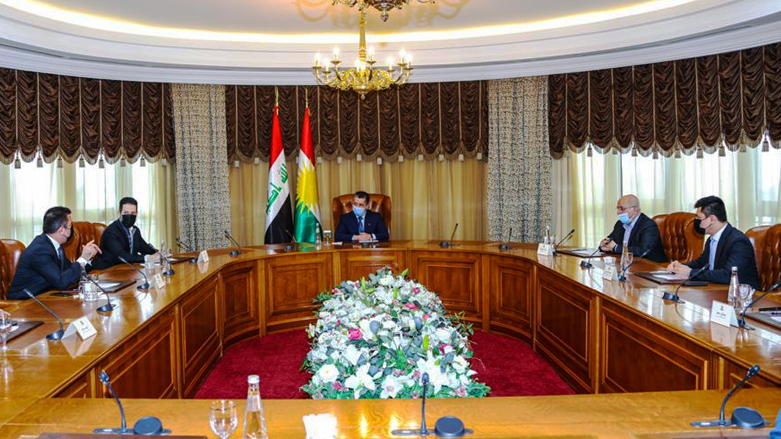KRG delegation returns to Baghdad ‘next week’ to continue talks: statement

ERBIL (Kurdistan 24) – A Kurdistan Regional Government (KRG) delegation will visit Baghdad again “next week” to continue the ongoing talks with its Iraqi counterparts on the lingering issues between the federal and regional government, according to a statement from the Kurdish government.
KRG Prime Minister Masrour Barzani on Thursday chaired a meeting with the regional delegation that recently came back from Baghdad, negotiating the Kurdistan Region’s fiscal share of the federal budget.
Read More: KRG delegation in Iraq’s parliament for budget talks
In the meeting, attended by Deputy Prime Minister Qubad Talabani and his accompanying delegation, “the latest developments and trends of the negotiations with the Iraqi counterpart were discussed,” according to a statement from the prime minister’s office.
The delegation emphasized that “the talks would continue toward reaching a deal on a constitutional basis in which the Kurdistan Region’s financial rights and entitlements are secured,” the statement noted.
It was later decided that the delegation would return to Baghdad “next week” to continue the talks, according to the statement.
The meetings with the Iraqi head of legislators are part of the Kurdish delegation’s continuing talks and negotiations with its Iraqi counterparts over the outstanding issues between them, particularly the Kurdistan Region’s fiscal share in the Iraqi proposed 2021 budget.
The relations between Erbil and Baghdad are shaped by various disputes, ranging from the Kurdistan Region’s share of the federal budget, land claims, compensation of Kurdish families and survivors of genocides, the financial entitlements of Kurdish farmers, and more.
Editing by Karzan Sulaivany
